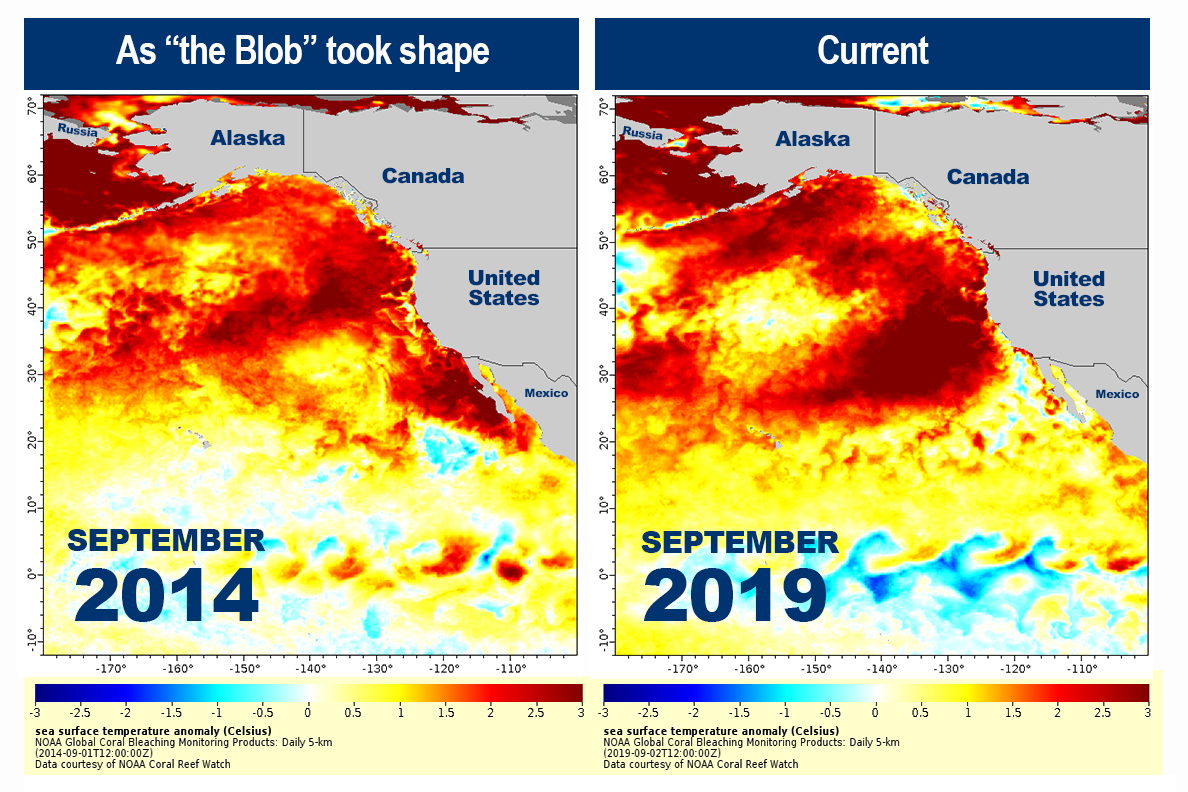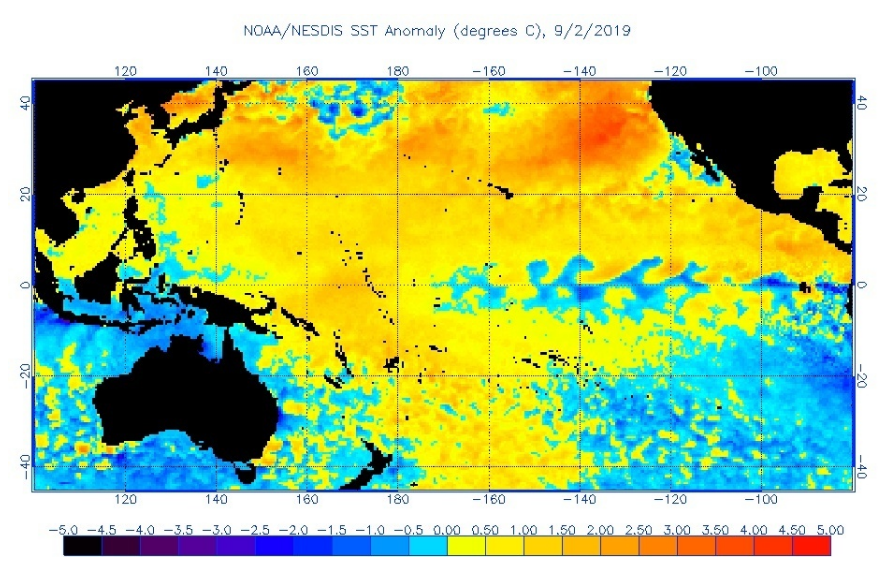Ocean scientists are closely watching a patch of unusually warm water in the Pacific Ocean that could have serious implications for marine wildlife.

The U.S. National Ocean and Atmospheric Administration (NOAA) says the new marine heatwave, which stretches from Alaska to California, could be on track to recreate “The Blob.”
That patch of ocean water, with temperatures 3 C to 4 C above average, appeared between 2014 and 2016, significantly disrupting the ecosystem.
WATCH: NDP calls on Liberals to address rising ocean temperatures

“It’s on a trajectory to be as strong as the prior event,” NOAA Fisheries research scientist Andrew Leising said in a statement.
“Already, on its own, it is one of the most significant events that we’ve seen.”
In fact, the NOAA says the new heatwave, dubbed the Northeast Pacific Marine Heatwave of 2019, or NEP19, is the second largest in the last 40 years.
Canadian Department of Fisheries and Oceans (DFO) oceanographer Peter Chandler said the appearances of the Blob are an indicator of climate change.
“When we look at how the ocean is changing, we often kind of relate what it looks like right now compared to what it looked like over the last 30 years, and that’s called the anomaly,” he said.
“What we’re looking at now is that over the past 30 years things have changed. So our baseline is now changing as well, so it looks like these these events are going to happen more and more frequently.
The agency believes the heatwave was caused by a ridge of high pressure that dampened winds, which usually cool the ocean’s surface.
The NOAA said it has so far been held to the open ocean by cold water upwelling along the coast, but warned that marine system typically dies down in the fall, meaning the new blob could soon make its way to coastal regions.
That has raised concerns about the effects on marine species.
WATCH: Study: Oceans absorbed 60% more heat than anticipated

The 2014-2016 Blob adversely affected salmon by reducing the quality of food to young salmon entering the ocean and shifting predator distribution, according to the NOAA.
The DFO has already raised the alarm about the current state of salmon, forecasting anemic sockeye returns this year.
DFO officials said this year’s poor returns were likely influenced by the previous Blob, thanks to the event’s effects on the food web.
“This one now is on a is basically on the heels of a first one,” said Chandler.
“So the juvenile salmon that made it to sea in 2014-2015, they came out into into a pool of warm water and now they’re re experiencing that in a later stage in life. We really don’t know what those compounding effects are going to be.”
Salmon were not the only species affected by the previous Blob. The NOAA said it also contributed to the largest harmful algal bloom ever recorded on the West Coast, the stranding of thousands of young California sea lions, and “multiple declared fishery disasters.”
During the last Blob, unusual species, such as ocean sunfish and Humboldt squid, were spotted in northern waters.
WATCH: B.C. researcher spots troubling evidence of rising ocean temperatures

Despite concerns, the NOAA says the new Blob could still break up quickly, should weather patterns change.
Current forecasts suggest the heatwave should begin moderating, but that it will persist for months.
In the meantime, scientists are closely monitoring the heatwave, and comparing its effects to those of the 2014-2016 event.
- Joffre Lakes to close for 3 periods this year under agreement with First Nations
- ‘Why aren’t we doing more?’ White Rock on edge with killer on the loose
- B.C. carjacking victim says she doesn’t trust the ‘catch-and-release’ system
- Inquest into fatal Surrey hostage-taking recommends cameras for ERT teams






Comments